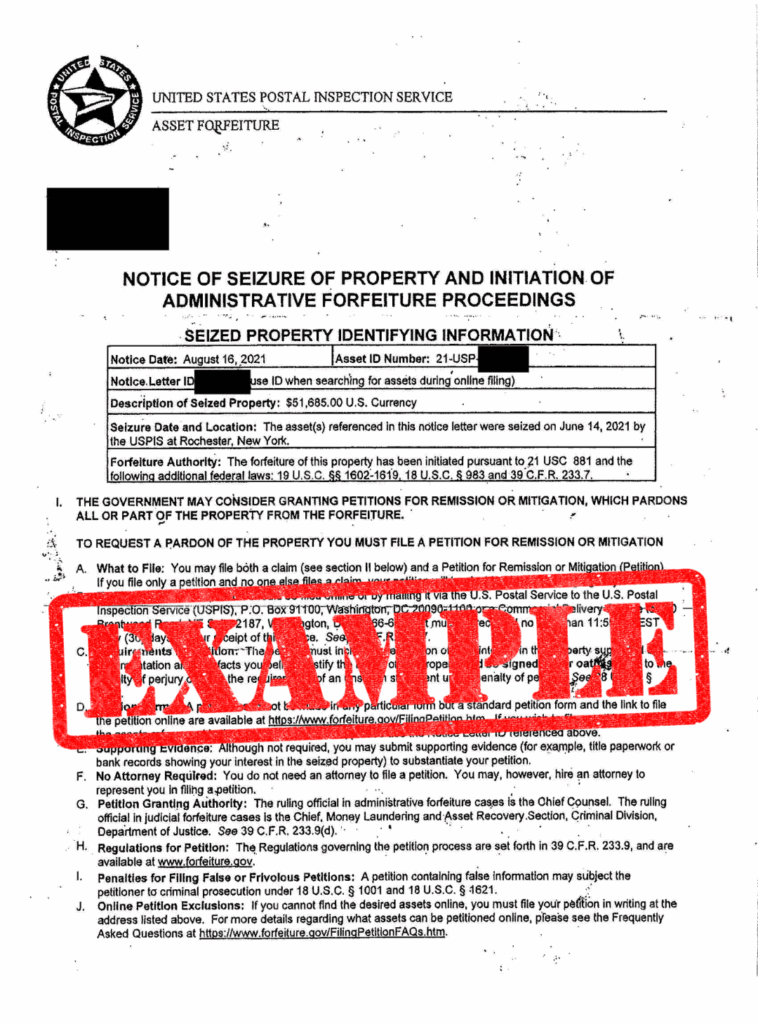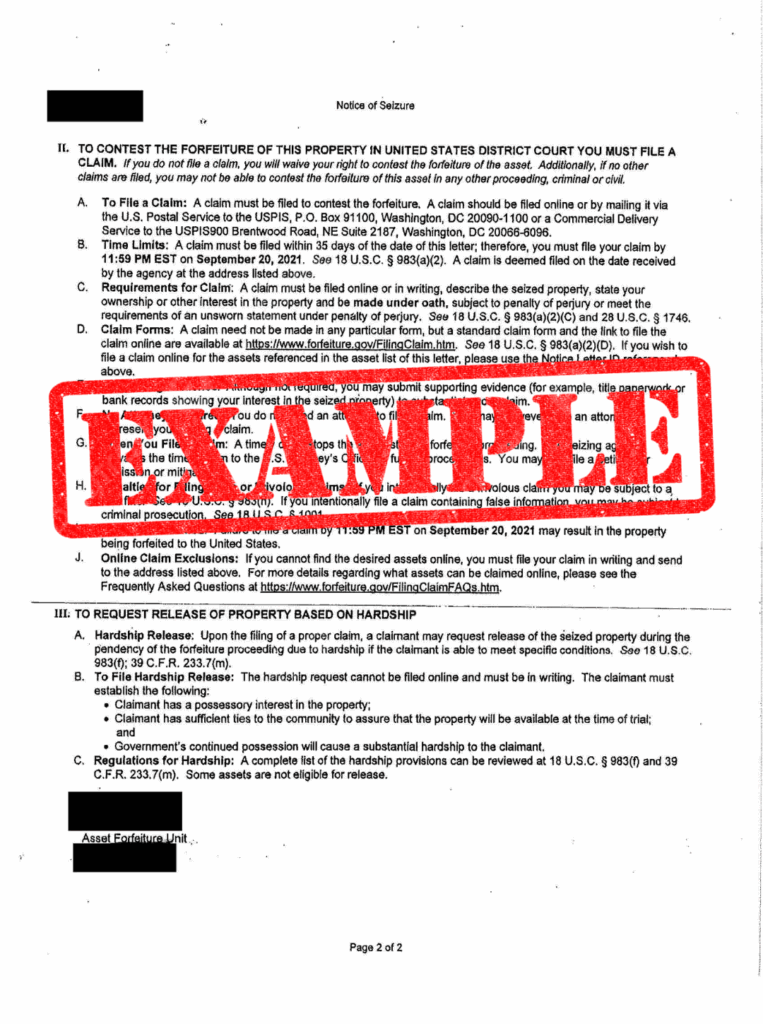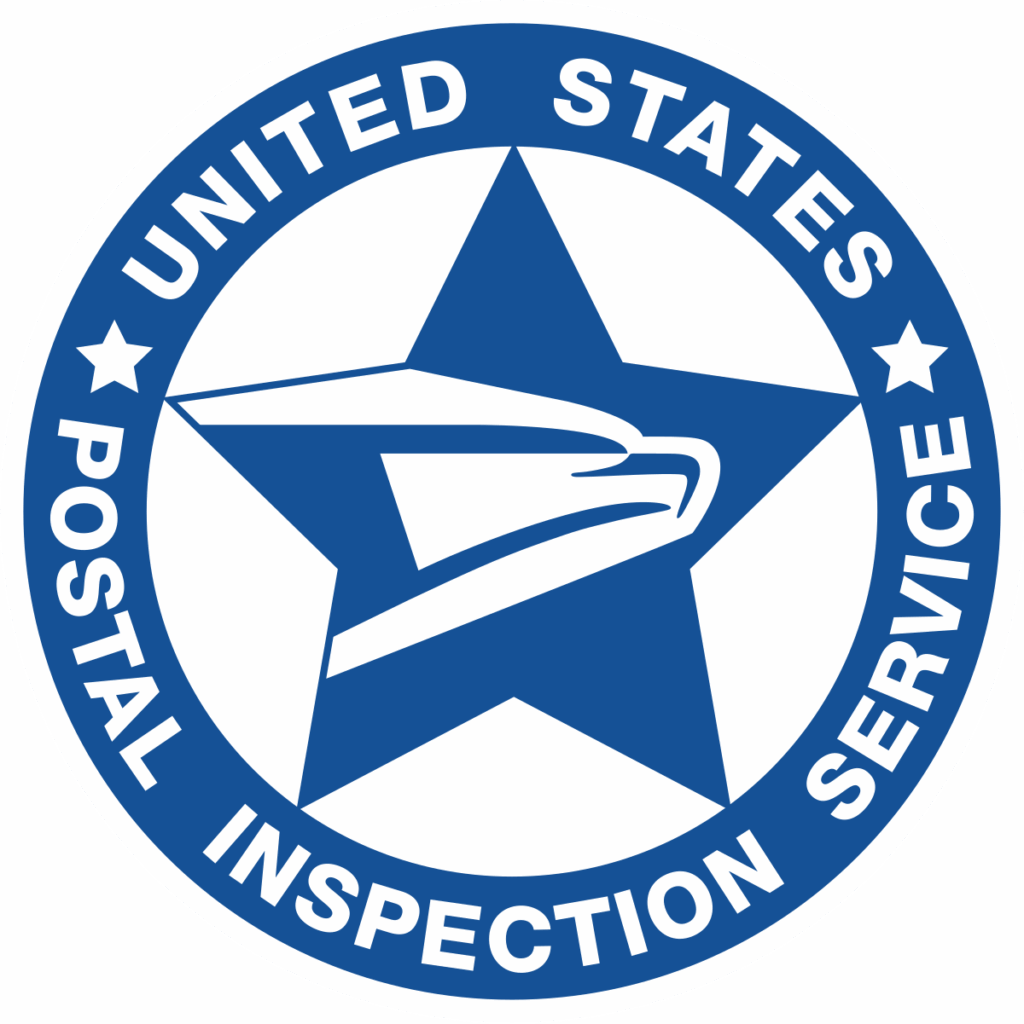USPIS Asset Forfeiture
If the United States Postal Inspection Service (USPIS) has seized your money, electronics, packages, or other personal property, it’s important to understand why the seizure occurred and what steps you can take to fight for your property.
At San Diego Defenders – Forfeiture Law Firm, we are one of the few law firms in the country with a dedicated focus on federal forfeiture law, and we regularly represent individuals whose assets have been seized by USPIS.
Don’t try to handle this alone or wait until it’s too late. You have the right to fight back, but there are strict deadlines, which are often just 30-35 days from receiving notice.
Contact San Diego Defenders – Forfeiture Law Firm today at (619) 258-8888 for a free, confidential consultation. We’ll explain your options and how we can help. We offer flexible payment options, such as affordable payment plans and contingency fees, where we do not get paid until you win!
Here is a breakdown of key information about USPIS asset forfeitures, including what to expect and how an experienced USPIS asset forfeiture attorney can help:
What is USPIS?
The United States Postal Inspection Service (USPIS) is the law enforcement arm of the U.S. Postal Service (USPS), which seeks to “defend the nation’s mail system from dangerous or illegal use.”
39 CFR § 233.7, 18 USC § 983, and 19 USC 1602–1618 outline USPIS’ forfeiture process, regulations, guidelines, and authorities for seizing mailed cash or other property.
As outlined in 18 USC § 3061, USPIS is authorized to investigate criminal matters involving mail system misuse or fraud through the postal service.
Per the Department of Justice (DOJ) and USPIS, this agency is responsible for protecting the integrity of the mail system and investigating offenses such as mail fraud, identity theft, drug trafficking through the mail, financial scams, counterfeit postage, money laundering, and violent crimes committed against postal employees.
Their mission is to protect postal workers, secure the nation’s mail infrastructure, and ensure that criminal misuse of the mail is detected and prosecuted.
What Assets Can USPIS Seize and When?
USPIS may seize property suspected of being involved in or derived from a federal crime.
This authority is primarily granted through federal forfeiture statutes, such as 18 USC § 981 (civil forfeiture), 21 USC § 881, and 18 USC § 983 (procedural rules for federal forfeiture).
Items commonly seized by USPIS include cash believed to be proceeds from illicit activity, checks or money orders allegedly involved in fraud, electronics such as computers and mobile phones accused of being used in scams or identity theft, and mail parcels containing illicit substances or counterfeit goods.
These seizures often occur during investigations into mail fraud (18 USC § 1341), wire fraud (18 USC § 1343), identity theft (18 USC § 1028), or drug trafficking offenses (21 USC § 841 and § 846) that involve the use of the mail.
Why Does USPIS Seize Property?
Under 18 U.S.C. § 981(a)(1), the Government may seize any property claimed to be involved in or traceable to a violation of certain federal crimes, including those frequently investigated by USPIS.
For example, property can be seized if obtained through fraud or used to facilitate a criminal offense involving the mail.
According to 18 USC § 983(c), the government must establish, by a preponderance of the evidence, that the property is subject to forfeiture and that a connection exists between the property and the criminal activity.
However, it is essential to note that sometimes this can occur even if you have not been charged with a crime.
Where Does USPIS Typically Seize Property?
USPIS asset forfeitures can occur at numerous places, such as mail processing centers, local post offices, or during package intercepts.
In some cases, search and seizure may take place at a residence, place of business, or financial institution after a federal search warrant or seizure warrant has been issued.
USPIS agents frequently collaborate with other federal agencies such as the Drug Enforcement Administration (DEA), the Internal Revenue Service (IRS), or the Federal Bureau of Investigation (FBI) during complex investigations.
While San Diego is a major hub for cross-border mail seizures, San Diego Defenders – Forfeiture Law Firm has handled USPIS-related forfeiture cases throughout California and across the United States.
How Can a USPIS Asset Forfeiture Attorney Help?
Once your property has been seized, USPIS or the relevant federal agency will send you a Notice of Seizure and Initiation of Administrative Forfeiture Proceedings letter by certified mail. This notice is governed by the Civil Asset Forfeiture Reform Act (CAFRA) under 18 USC § 983(a).


You will have a limited number of days from the date of the notice to respond, and your options include:
- Filing a petition for remission or mitigation directly with the seizing agency. This is a non-judicial option and does not challenge the legality of the seizure. We generally recommend against filing a petition on your own since there is no time limit for the agency to respond to you.
- Filing a claim and requesting judicial forfeiture, which forces the government to initiate a civil or criminal forfeiture action in federal court. It sounds intimidating, but a Claim formally contests the seizure and guarantees DUE PROCESS, whereas a petition only allows limited rights.
- Our USPIS asset forfeiture attorney with 35 years of experience in federal defense can help you navigate this process by representing you. Federal agencies recognize our firm.
If you choose to take no action, your property will be permanently lost to the Government.
Working with a qualified, experienced USPIS asset forfeiture attorney can make all the difference.
San Diego Defenders – Forfeiture Law Firm can evaluate your case, help you file the appropriate paperwork, and represent you in communications with the U.S. Attorney’s Office or the Postal Inspection Service. Call us at (619) 258-8888!
Contact San Diego Defenders – Forfeiture Law Firm Today!
If you’ve received a seizure notice of seizure letter from USPIS, don’t wait to take action.
Strict deadlines apply, and a failure to respond in time could result in permanent forfeiture of your property.
Call San Diego Defenders – Forfeiture Law Firm at (619) 258-8888 to schedule a free, confidential consultation.
You can also submit our online Free Case Intake Form here.
Se habla Español.
We are based in Chula Vista, California, but we serve clients facing forfeiture from all 50 United States.

